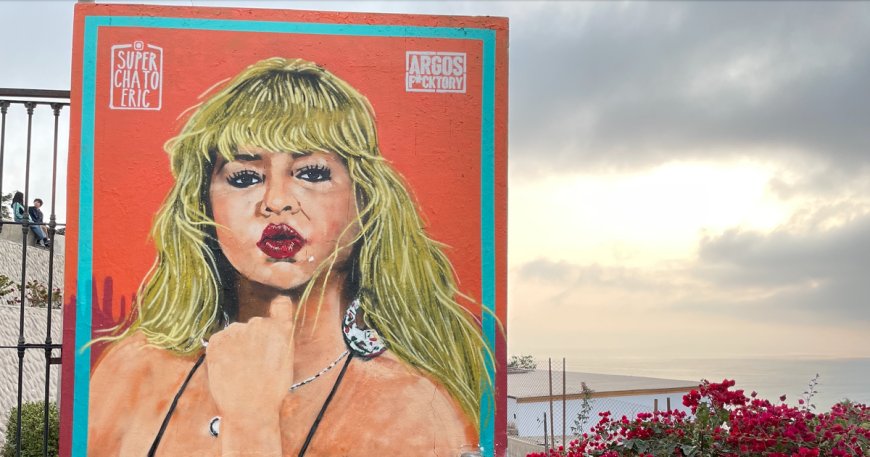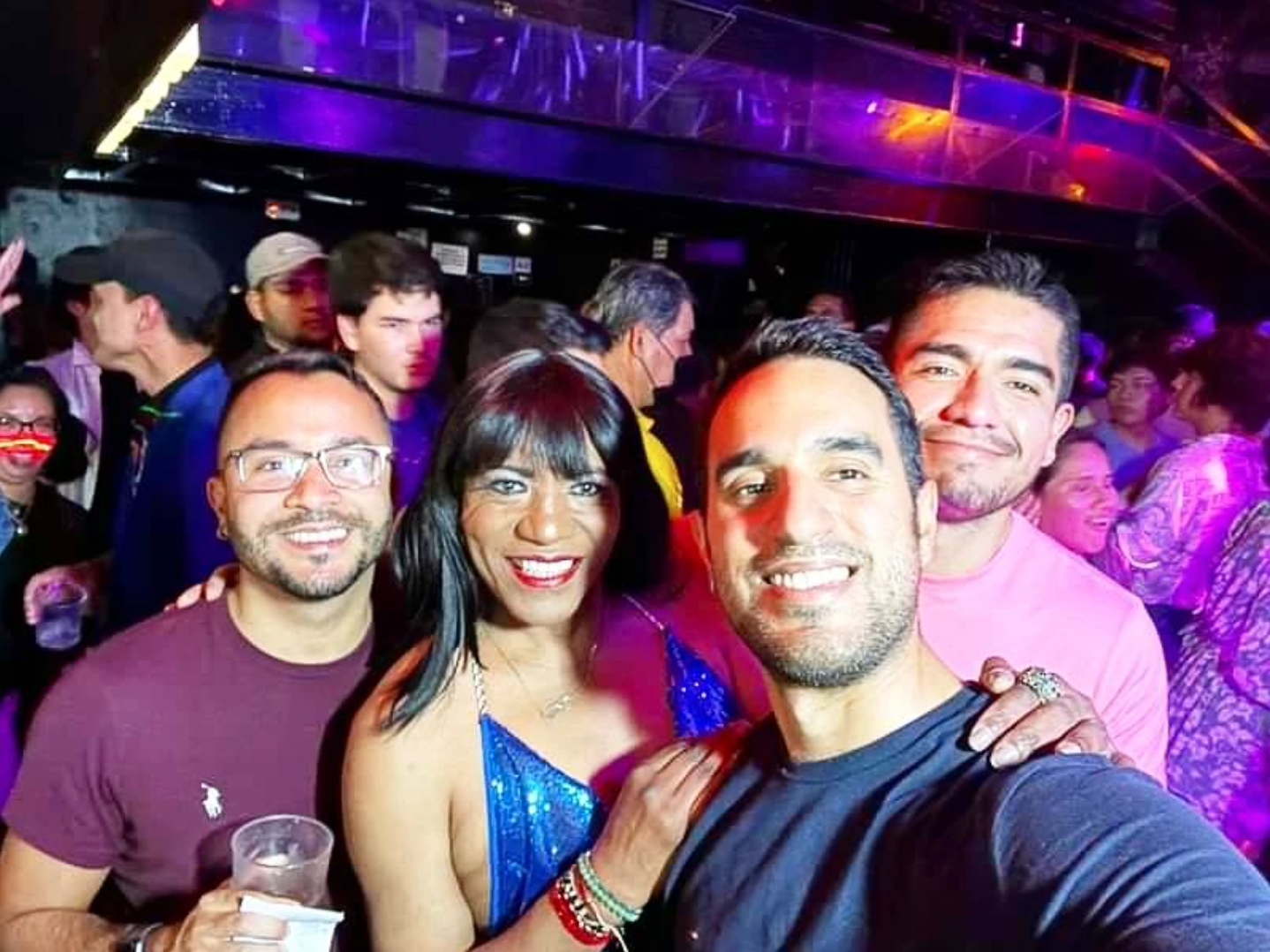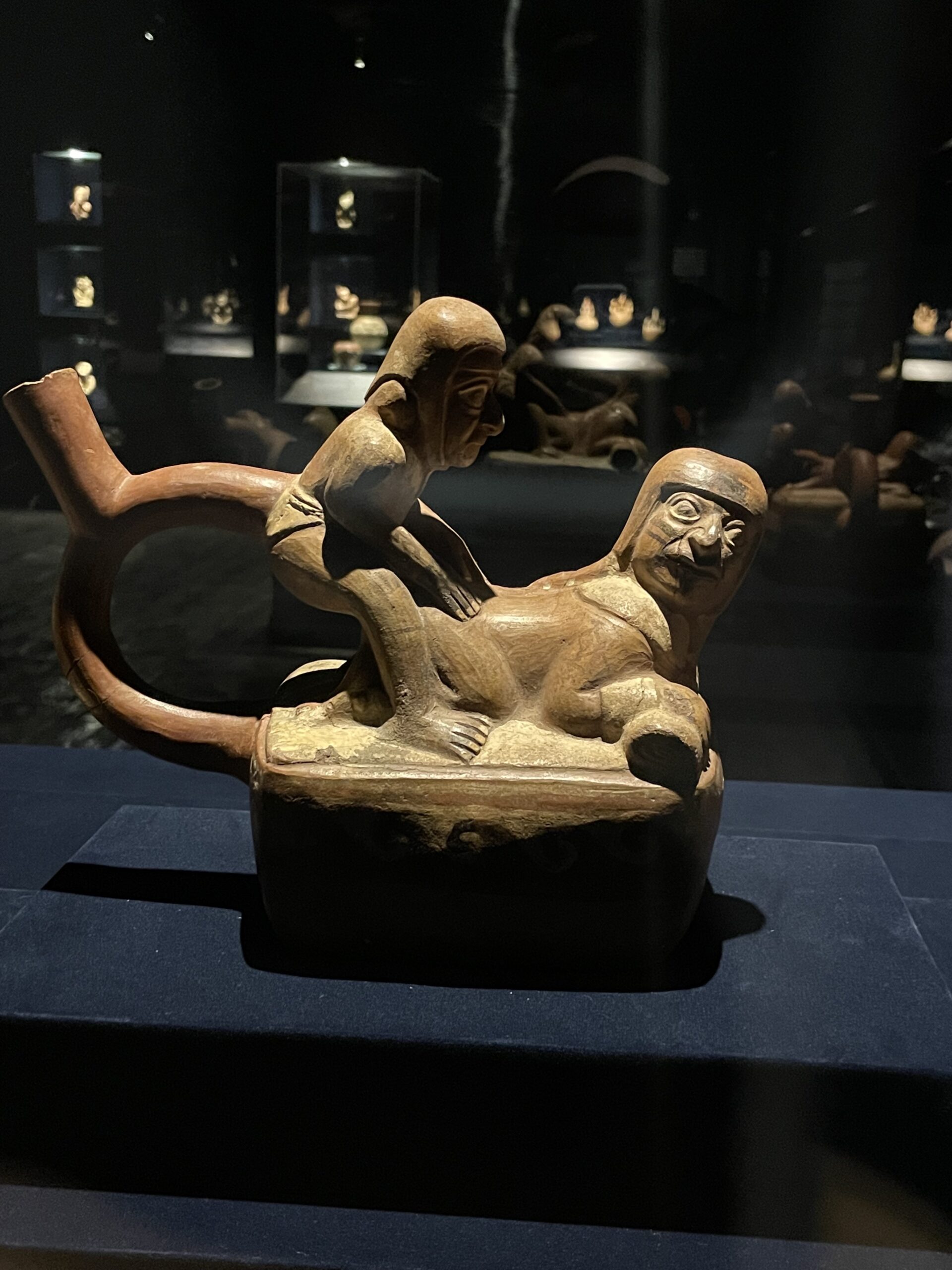How to live like a queen in Lima, the City of Kings
With an open mind and a hearty appetite, even the most leisurely traveler will leave Lima an explorer.


For most people, Lima is just a distant memory. It’s that place you stopped in for a day on your way to Machu Picchu, or that city that Carmen Sandiego escaped to after stealing the Great Wall of China with a pickup truck. However, as travelers come and go, trudging through the airport, soaring on to Cusco or Buenos Aires or Miami or Seattle, a rich tapestry of art, history, passion, and culinary excellence lies just within reach.
Like the people of Peru, this South American coastal citadel is both welcoming and multifaceted. From the buzzy Barranco and Miraflores Districts to the casual coast of Callao, Lima offers plenty of opportunities to learn and grow, even as you lose your mind on the dance floor. With an open mind and a hearty appetite, even the most leisurely traveler will leave Lima an explorer.
Here’s how – and why – you should spend three days in Lima, Peru:
Day 1 – Bumbling around Barranco

Barranco may serve as your best introduction to Lima’s history and cultural heritage. Discover the colorful murals that punctuate the colonial facades of this hip hood. Most of the district’s architecture calls back to 19th-century Bohemia. Today, Barranco retains its bohemian flair with its flock of artists and musicians that frequently stage one-act plays and concerts.
To kick off your Lima adventure, have brunch at Bodega Verde. Perched over a picturesque mural-filled canyon, Bodega Verde offers a classy dining room and courtyard that feature board games, an indie pop soundtrack, and delicious brunch food. Once you’ve sampled, well, everything, you can stumble over to the famed Puente de los Suspiros, or Bridge of Sighs. Legend has it that if you make a wish before crossing and then hold your breath before reaching the other side, your wish will come true. Thankfully, the bridge isn’t very long.
Just beneath the Bridge of Sighs lies the Bajada de Baños, which stretches past cafés, galleries, and restaurants toward Lima’s stunning coastline. While you may not be hungry after your brunch, you’ll at least appreciate the view at the end.
Then, once you’re ready, you can head back up to Barranco and choose from an embarrassment of cafés for your afternoon snack. Truly, there are so many. Fancy a bitter orange latte? Hit up Colonia & Co. (but don’t expect good Wi-fi). Prefer art with your coffee? Visit Dédalo, which boasts several rooms’ worth of locally crafted gifts and curios. Want your cappuccino and cinnamon roll to help the Peruvian ecosystem? Peek into Felicia y Domingo, which not only sells work by local artisans but cooperates with coffee farmers in northern Peru to protect essential animal species.
After you’re done wandering through Barranco in search of street art and coffee, you’re bound to become hungry again. At this point, your best bet might be to grab dinner at the nearby Isolina. Noted for its intimate, tavern-style ambiance, as well as its perfectly executed traditional Peruvian fare, Isolina is an exceptional introduction to Peru’s world-class cuisine. Just make sure you have a reservation. Also, be prepared to eat cow kidneys.

If you’re up for extending your night, then your top — and some might say only — choice for a gay bar will be Downtown. Located in the glitzy neighborhood of Miraflores, Downtown offers all the dancing, flirting, drinking, and peacocking that you’d expect from Peru’s biggest gay club. But if grinding on 300 20-something Peruvian guys isn’t your thing, then you can always settle for one of the many alternative parties within Lima, including Discofobia and La Santa Locura. You could also follow the drag queens Xanaxtasia or Go Diva for updates on the hottest local tickets.
Day 2 – Miraflores Madness
If yesterday felt more casually cool, then you might want to complement all that mindless strolling and partying with a day of culture around Miraflores. But first, you’ll need fuel. The only question is where you’ll get it. While the myth about Limeños skipping breakfast is true – breakfast is simply not an important meal in the City of Kings – you’ll still have options. For example, at Mangos, you’ll have both delicious food and a sweeping view of the ocean. At La Caffetteria di Lonato, you’ll have friendly service and homestyle pancakes. On top of that, you can complement your visit with a stroll through Parque Kennedy, which is famous for its friendly and very adorable stray cat population.
Once your hunger is satisfecho, it’s time to get into an Uber and take yourself over to the Museo Larco, a local institution heralded for its collection of pre-Columbian artifacts. However, it’s also quite well-known for its absurdly large collection of ancient erotica. In the museum’s “adult” section, you’ll find pene-shaped pitchers next to depictions of Moche men engaging in the love that dare not speak its name. (The museum placards won’t acknowledge the gay stuff, but you’ll know it’s there.)

If you’re feeling especially adventurous, then say goodbye to the penes of Museo Larco and take a 20 to 30-minute Uber ride over to Historical Callao. This up-and-coming district is located on La Punta, which juts out of the Peruvian coast like a bony finger stretching across the Pacific. While you should avoid walking through Callao at night, it remains a coveted destination for art lovers during the day due to its eye-catching street displays and rotating galleries. Grab a fried, syrupy picarón from a street vendor and pop into Fugaz, where you’ll find all kinds of experimental, boundary-pushing art. Then, on your way back, you can gawk at the big, bold names scrawled in navy blue across the eroding brick walls of central Callao. While they may seem like graffiti at first, they’re actually the names of political candidates running for office. As it turns out, paint is cheaper than billboard space.

Wait, we never talked about where you’re going after Callao. However, if you just said “Central in Barranco,” then you chose correctly. Named the #2 restaurant in the world in 2022, Central is one of those places that you should book two months in advance. You’ll also need to refinance your house to pay for it. Once you’re in, though, the entire experience will rock your world. The tasting menu includes not only Peruvian staples like cassava, squash, and potatoes, but rarer ingredients like chaco, qolle flowers, and arapaima. Chaco is an indigenous clay mixture used to make papas less bitter, while arapaima is an enormous freshwater fish found only in the Amazon. Additionally, every plate in this restaurant represents a different ecosystem of the Peruvian landscape and seascape. You can taste everything from Lake Titicaca to the ocean floor, and everything in between.

Later, if you still have energy, you might pop into Ayahuasca before you head home for the night. This gay-friendly bar and restaurant may be situated inside a former colonial mansion, but it doesn’t betray any pretense of the sort. Among the energetic, snazzily dressed clientele, you’ll glimpse brightly-lit shelves of mysterious liquid flanked by gaudy portraits of Peruvian icons like Augusto Polo Campos and Chabuca Grande. By the end of the night, you’ll feel like a member of the bohemian Barranco elite.
Day 3 – Pyramids and Picarones

The word “Peru” typically conjures images of the mist-covered labyrinths of Machu Picchu or the floating villages of Lake Titicaca. It doesn’t usually make you think of pyramids. However, the center of Lima is actually home to its very own massive pyramid, albeit a rather flat-topped one. Huaca Pucllana, an adobe and clay structure in the heart of Miraflores, is both sprawling and forlorn, an impressive tribute to a long-departed ancient culture. Once you’re finished climbing the pyramid with your guide, you’ll want to grab lunch at the on-site Huaca Pucllana Restaurant, where you can follow ceviche or lamb with exquisite goat cheese cheesecake.
If you want a more traditional Peruvian dessert instead of cheesecake, then hurry up and check out La Picaronería in Miraflores. This homey and inviting restaurant specializes in picarones, which you really should try before leaving the country. These fried rings of squash are dipped in chancaca sauce, a regional syrup made from unrefined sugarcane. It adds just a tinge of bitterness to the proceedings — a perfect complement to the unabashed sweetness of these crunchy, chewy delights.
When you’ve had your fill, it’s time to Uber over to the swanky San Isidro district for a romp at Carnaval. Ranked one of the world’s best bars in 2022, Carnaval constantly impresses tourists with its one-of-a-kind creations. Truly, there are few places where your gin cocktail is served in a Chinese sky lantern that deflates in front of your eyes. Even the décor here is a cocktail of unexpected ingredients, leading your eye from Japanese kabuki masks to Russian nesting dolls.

Got a healthy buzz going? It’s time for your last supper, so why not go all out at Mayta or Maido, which rest at #32 and #7 in the world’s top 50 restaurants, respectively. The former specializes in sustainability and magnificently crafted presentations, whereas the latter specializes in Nikkei – or Japanese-Peruvian – cuisine. Both have delicious tasting menus.
Of course, you could spend an entire week just enjoying Lima’s restaurants, so please don’t limit yourself to buzzy locales if you have extra time. For example, Lima is a great place to try chifa cuisine, which takes the best parts of Peruvian food and the best parts of Chinese food and whips them all together. Madam Tusan is a great chifa choice, for example. But don’t sleep on the street food, either: You shouldn’t leave Peru until you’ve tried an anticucho (meat skewer) or butifarra (pork and onion sandwich).
At the end of the day, Lima is more than just the places you ate or the pyramids you climbed. Rather, it’s a portal into Peruvian life via stir-fried beef and murals of bluebirds: an introduction to the music, cuisine, history, folklore, conflicts, triumphs, and joys of a country that has outlived some pretty hard times.
As you take off from the airport, you’ll no doubt make a promise to visit Lima’s chipped-paint colonnades and bougainvillea-lined balconies once again.

 Mark
Mark 





